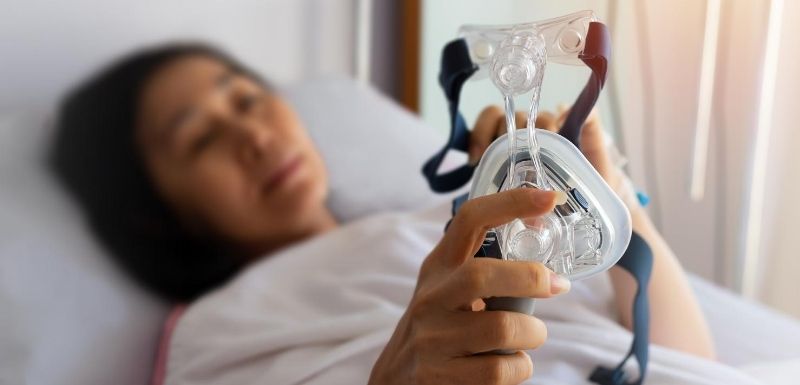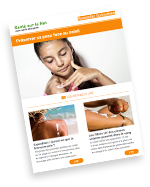What was the impact of confinement on people with sleep apnoea treated with continuous positive airway pressure? This is the question that Alliance Apnée du Sommeil asked itself, in partnership with a team from the sleep centre of the Grenoble University Hospital. Even if they followed their treatment well, the patients regret not having received more advice to manage this stressful period.

Sleep apnea in France
This condition is a nocturnal disorder resulting in fragmented sleep with breathing pauses of more than 10 seconds, occurring more than five times per hour. These apnoeas can lead to several awakenings which directly impact on the quality of life of patients. They may suffer from mood disorders such as depression, drowsiness and uncontrollable sleepiness (which increase the risk of road accidents), but also from memory and concentration problems.
These breathing problems are treated with a continuous positive airway pressure (CPAP) machine that keeps the airways clear by nasal ventilation during sleep. In addition, it is important to adopt certain measures such as stopping smoking and limiting alcohol consumption (especially in the evening).
In France, more than 5 % of the population is affected, i.e. 3 to 4 million people. However, nearly 7 out of 10 people are unaware that they have the disease.
There are many risk factors:
- Overweight and obesity
- Age: 30 % of people over 65 are affected
- Gender: a man is more exposed than a woman
- Genetic characteristics
- Alcohol, sedatives and tobacco use
Apnea patients not well informed during confinement
The association Alliance Apnea du Sommeil is committed to improving the care of people suffering from this pathology. Its mission is to improve the screening and the efficiency of the treatment of people with apnea, and to promote information on this disease to the general public and the authorities.
This association was interested in the impact of confinement on the care of 14,000 patients treated with continuous positive airway pressure, and their feelings about the risk of contracting the coronavirus.
It appears that 96% of them did not stop their treatment and 86% did not change it. Despite the risk of aerosols produced by their machine, patients did not change their treatment.
Moreover, 3.3% of the patients surveyed contracted the coronavirus, of which 8.7% required hospitalisation. These data show that the incidence of Covid-19 among people with sleep apnoea is not higher than average.
However, the study reveals a change in eating habits (25%) and sleep patterns for 70% of the respondents (32% going to bed later and 25% getting up later than usual). This proves that this confined period has significantly impacted the chrono-biological reference points of the patients.
Of those surveyed, 85% would have liked more support during their 40s. They would have liked to receive more advice and information about their treatment, especially in managing stress and anxiety. This suggests that home health care providers could play an even greater role in supporting patients.
Prescillia P., Designer-Writer
- The continuous positive airway pressure (CPAP) machine. SLEEP APNEA ALLIANCE. Accessed on 7 August 2020.
- Understanding sleep apnea. AMELI. Accessed on 7 August 2020.


